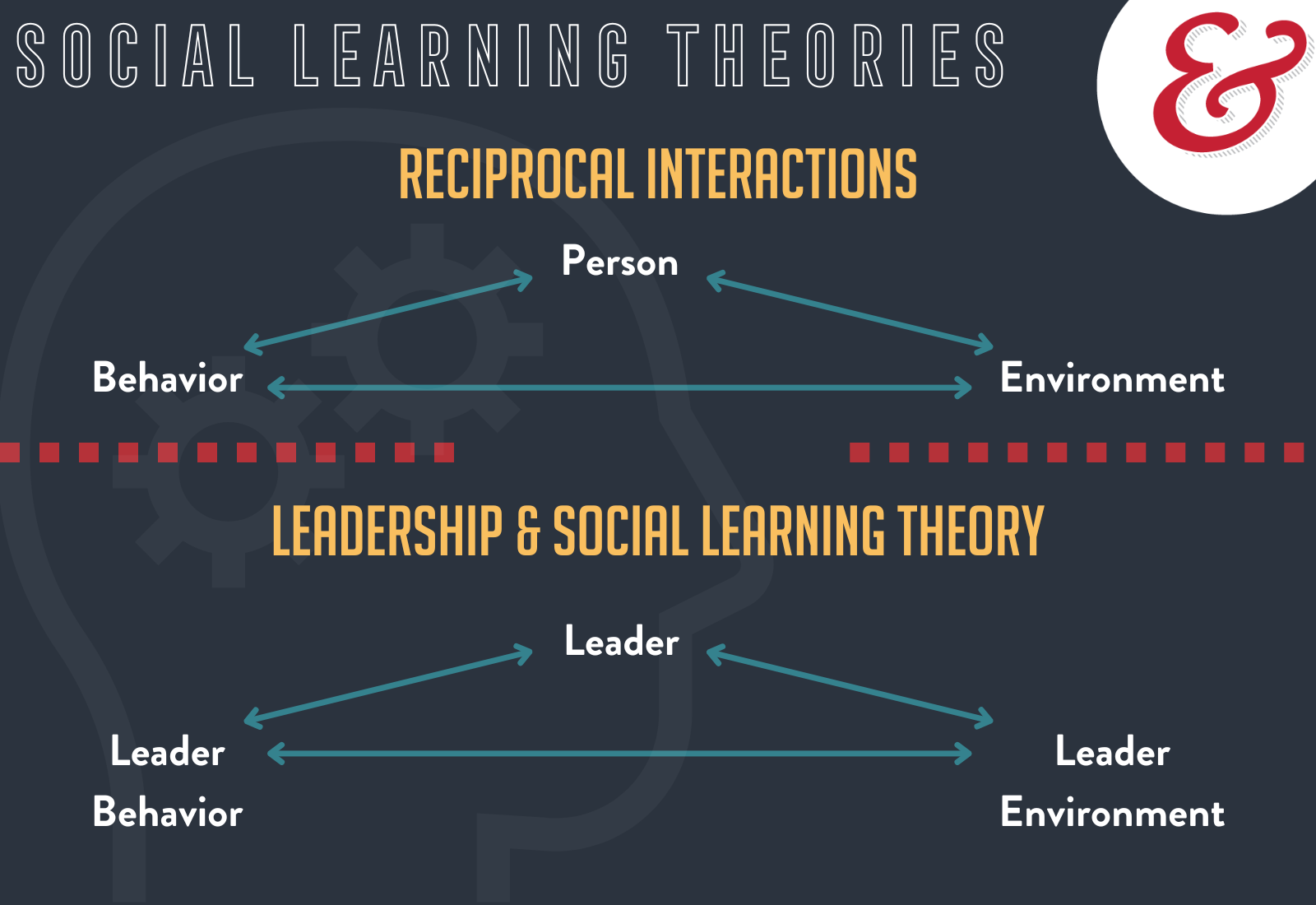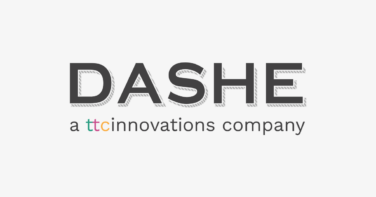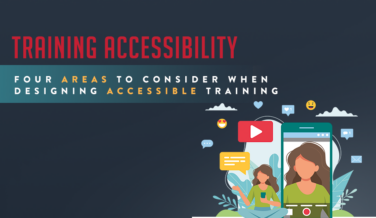Social Learning For Leaders
Learning and Development: Social Learning for Leaders
For leaders, social learning is an effective way to increase desired leadership abilities, behaviors, ethics, and skills. Social learning requires constant awareness of your surroundings and your responses to the actions of yourself and others around you. Social learning first came about in the 1960’s when Albert Bandura defined a cognitive process which takes place within a social context. But in L&D today, social learning has become a powerful tool for developing both leaders and organizations. Typically, social learning has a strong positive impact on soft skills and performance, but it needs to be done properly and effectively. There’s no one size fits all technique to utilizing social learning in your organization; it’s most effective through natural social processes like discussions.
Leadership and Social Learning Theories
In both formal and informal settings, social learning theories have been used for decades in teaching management and leadership skills. Social Learning has purpose in leadership, and it enables understanding the behaviors of a leader or manager, and the continuous shared interaction between the leader and the environment that controls their behaviors. There are three primary aspects to social learning that leadership encompasses:
- Leaders acknowledge that their behavior is controlled by the various situations, experiences, and needs that are present.
- Leaders work with their employees and teams to discover what needs, situations, and experiences can potentially arise.
- Thus, leaders and employees then work together to discover ways in which they can manage individual behaviors to generate adequate and constructive outcomes.
It makes perfect sense, right? Well just in case it doesn’t, the experts on staff at Dashe can help with all your needs. It’s an inside-out process that starts with leaders fully understanding themselves—their values, style, strength, and philosophies. Once we can identify current skills in place, we take an outward approach that focuses on the specific skills and behaviors needed for effective leadership experiences, including incorporating social learning and the how-to’s of building a high performing team. What works for one organization doesn’t necessarily work for all. Look here at an interactive video example that our client APi Group implemented for Building Great Leaders. This training method inspired the leaders and employees with enthusiasm and buy-in for an upcoming initiative.
A social learning approach to leadership is as follows:

Leadership Training: A Full Circle to Social Interaction
The central approach to leadership development has traditionally been through the process of providing instructional training with an intent to bolster the aptitude and competencies of the leaders and managers in order for them to become more efficient and productive. But as we’ve moved into more of the digital age for learning and development, a lot of these social skills and discussions have received less consideration. Most organizations embrace the principle that developing strong leaders is vital to overall success, and it’s not a quick process by any means. Leadership development programs often lack modalities or rely too heavily on a single theory. The most effective leadership will combine curricula from all five adult learning models: self-concept, learner experience, readiness to learn, orientation of learning, and motivation to learn. So where does social learning and interaction come into play?
It’s well known that with leadership comes influence. Looking at ethical leadership, social learning perspectives are often taken into consideration as leaders influence the ethical conduct of employees/teams. Social learning allows leaders to accelerate individual and organizational growth simply by providing a safe space for employees to question, support, and innovate. Yes, social learning happens organically, but as leaders, you can (and should) be increasing the level of social learning occurring within your own team and organization. CIPD (Chartered Institute of Personnel and Development) found that in high-performing organizations, opportunities for social learning are five times more likely than in an average organization and 26 times more likely than in low-performing organizations. Therefore, it is not something you should underestimate or leave to chance. It is extremely important to remember that magnifying social learning isn’t the end goal, it is a means-to-an-end, a way to enhance ongoing performance improvement and innovation. So how does your organization start with social learning? What is required from you as a leader?
Consider some of these tips when implementing social learning into your leadership development strategy:
- Get feedback from your leaders and employees: The first step in any social learning strategy needs to start with the people. Figure out whether social learning would work well with your current environment, and if leaders are open to adopting social learning as a training method, and what their current skill level might be.
- Evaluate your current leadership training program and platforms: More than likely, you already have some training in place for your leaders and managers. By restructuring your current process, you might be able to lower costs by incorporating social learning. This can be as easy as creating a forum or chatroom where they can ask other leaders and team members questions and receive feedback.
- Implement social learning platforms into your organization: There are numerous social learning tools and platforms readily available. Some tools such as EdApp (there is even a free version available), have capabilities built in for discussion groups, video, forums, and even gamification.
- Allow for positive, and negative, feedback loops: One of the primary reasons that social learning is so effective for leaders is because it naturally creates feedback loops between managers and the organization.
Social learning can be fueled by group collaboration projects, group discussions, coaching, or mentoring. Always remember, improvement stems from the top town. You will find that there are several ways to implement social learning within your leadership development, so see what works best for your current program in place and start there.
Leaders Need Social Learning Skills
If a leader wants to grow a high-performing and successful team, social learning and shared learning experiences are critical to the organization. In today’s world, we are all becoming more connected and it’s vital to learn from one another. Dashe has made the process of incorporating valuable leadership training into your organization simpler. Not only are we versed with best practices, but our experts on staff can design and develop effective training that provides an engaging and interactive experience for your leaders and organization. Training that aligns with culture and values, incorporates social learning and organizational goals, while also motivating your employees through preferred modalities will encourage your leaders to take charge of their teams and drive high-performing results. Feel free to start a conversation with a Dashe expert, we’d love to hear from you!
Continue reading

Dashe joins ttcInnovations
Learn More
Embracing the Future: Early Adopters of Generative AI for Learning
Learn More
Four Areas To Consider When Designing Accessible Training
Learn MoreCommitted to
finding solutions
